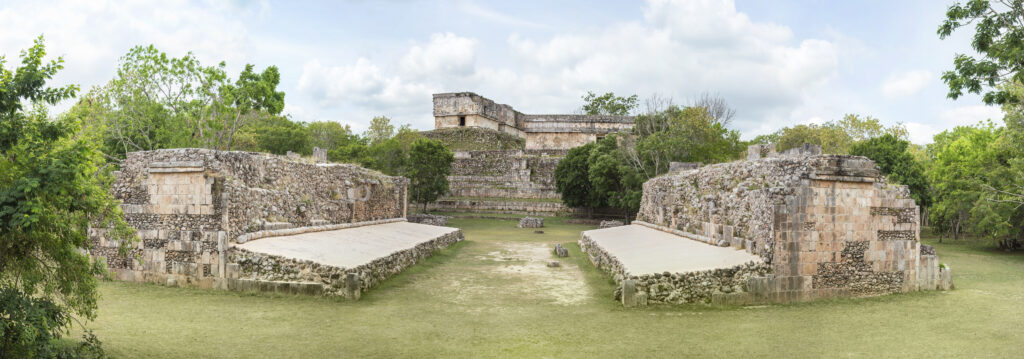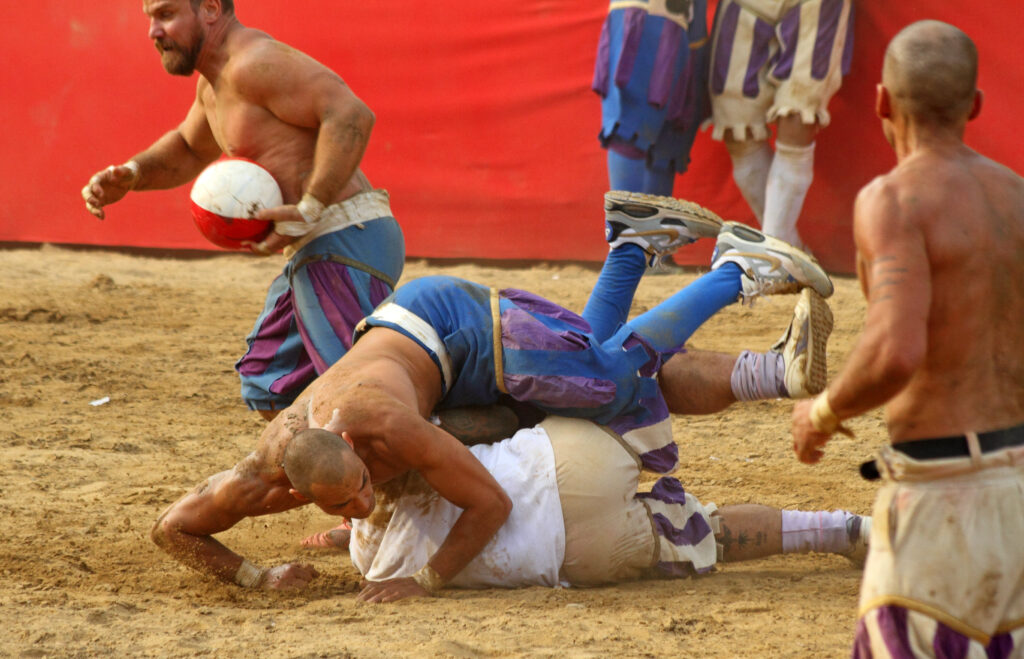Other World Football
Other World Football on Eirball includes Football varieties played in East Asia, Aboriginal Australia, Africa and Old Europe. In Europe Calcio Storico Fiorentino has been played by workers in Florence, Tuscany in Italy since the Renaissance. Lelo Burti is a Georgian version of Football. Both display many features in common with Gaelic Football. British forms of football include the Eton Wall Game in the eponymous English Public School and the Ba’ Game in Scotland. Both of these games include features of a scrum as in Rugby Union. Pacific / Oceanian variations on Footbag are Kemari in Japan and Marn Grook among Australian Aboriginals. Cuju in China features kicking a ball through a hole in a frame, much like penalty practice in Soccer. Sepak Takraw in Malaysia and Thailand, and a version in Myanmar are original Southeast Asian forms of Footvolley. Chandimu in Tanzania, Africa and a version in India are World Street Football sports. In the Americas, Ulama and Pok-ta-Pok are Traditional Ancient forms of Football among the Mexica and Maya in Central America (Mesoamerica) where the hips are used to propel a rubber ball through vertical hoops on either side of the ball court. One Foot High Kick is a Native North American (First American) form of Football whereby players attempt to kick a ball that is being held on a string above the ground and then land on the same foot used to kick the ball. The highest kick off the ground wins. Cuju and One Foot High Kick are individual sports where players attempt to score higher than opponents, all other World Football Sports are team games pitting one team against another with the highest score winning with the exception of the Footbag variations (Marn Grook, Kemari) whereby teams attempt to keep the ball in the air as long as they can kicking amongst themselves in a circle.
Calcio Storico Fiorentino
This is the Eirball – World / Irish North American and World Sports Archive landing page for Calcio Storico Fiorentino, one of the earliest forms of organised football in the world, and which bears a striking resemblance in play to Gaelic Football, as well as a shared Atlantic heritage in a pre-Roman/pre-English, pre-Catholic Rennaisance or Revival. To view results of Calcio Fiorentino just click on the links in red/blue (purple) below the introduction.
This is the GAA World (Eirball) Landing page for the All-Time Results of Calcio Fiorentino.
Header Picture Credit: [1] MONACO – CIRCA 1963: A stamp printed by MONACO shows an illustration of the Calcio Fiorentino field and starting positions from a 1688 book by Pietro di Lorenzo Bini, Florence, circa 1963 By Sergey Goryachev / www.shutterstock.com
Calcio Storico Fiorentino is a Renaissance Football game first played in Florence (Fiorentina), Tuscany in the 1400s by workers on breaks from work in the city. It was the first organised football in the world, rather than the Medieval mob football which preceeded it and where there were no rules or restrictions on numbers playing. It could be seen as part of the wider Renaissance whereby Tuscany’s ancient pre-Roman, pre-Catholic past was brought back.
The earliest orgainsed Football matches anywhere in the world, as far as Eirball has discovered, although earlier reports in Ancient Europe, Greece, Rome, Italy and China mention similar games, though of what nature is hard to discern – they may just have been children’s catching games. [See articles on Medieval Football at: Medieval Celtic Sports for more information and references on this]
*The Tuscan language (Etruscan) is one which predates the Latin arrival in the Italian peninsula, and even though the letters and sounds are known there is no knowledge of the word meanings as no document translating Etruscan to Latin or Greek has ever been found. It does, however, sound similar to Basque, and therefore could be incuded in the Celtic sports section as part of the “Atlantic” or “Black Atlantic” family along with the Celtic languages, Basque and Berber (Tamashek) – half the words in the Gaelic language are of an Indo-European origin (Greek, Latin, Germanic, Slavic etc)and half of a North African Afro-Asiatic origin (Berber, Tuareg, Maltese, Hebrew, Arab etc).
[References: [4] Calcio Storico Fiorentino Sito Ufficiale (2020) CALCIO STORICO FIORENTINO [Internet] Available from: http://calciostoricofiorentino.it/?q=calcio-storico-fiorentino [Accessed 4 August 2020] and [5] Calcio Storico Fiorentino Sito Ufficiale (2020) Studies & Documentation [Internet] Available from: http://www.calciostoricofiorentino.it/?q=studi_e_documentazione [Accessed 4 August 2020]
Calcio Storico Fiorentino (Tuscany)
FLORENCE – JUN 24: Fighting players during Calcio Fiorentino match on June, 24,2012. Calcio fiorentino (calcio storico or calcio in costume) is an historic florentine game, origins of modern football Copyright: mkistryn
Calcio Storico Fiorentino
Calcio Storico Fiorentino Finals 1952-Present
Calcio Storico Fiorentino (Seasons)
2023 Finale: Rossi di Santa Maria Novella 9 – Azzurri di Santa Croce 2
2022 Finale: Azzurri di Santa Croce 11½ – Rossi di Santa Maria Novella 7½
2020 Finale: Not Played (Cancelled due to Covid)
Calcio Storico Fiorentino August Festival (Seasons):
[References: see Encyclopedia Brittanica sections on Indo-European, Celtic, and Afro-Asiatic languages: Encyclopedia Britannica | Britannica ]
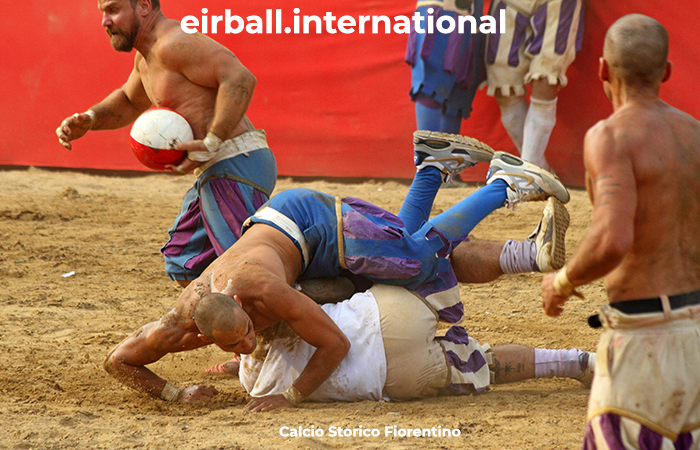
Asian and Australasian Footbag
Footbag (hacky sack) is a modern version of Ancient East Asian and Australian Aboriginal Football games which are based around the concept of keepie-uppies – kicking the ball to each other in an attempt to keep it in the air as long as possible without the ball touching the ground.
Kemari (Japan)
Kemari (Japan)
Kemari is an ancient Keepie-Uppie Version of Football from Japan.
Kemari (Japanese Football)
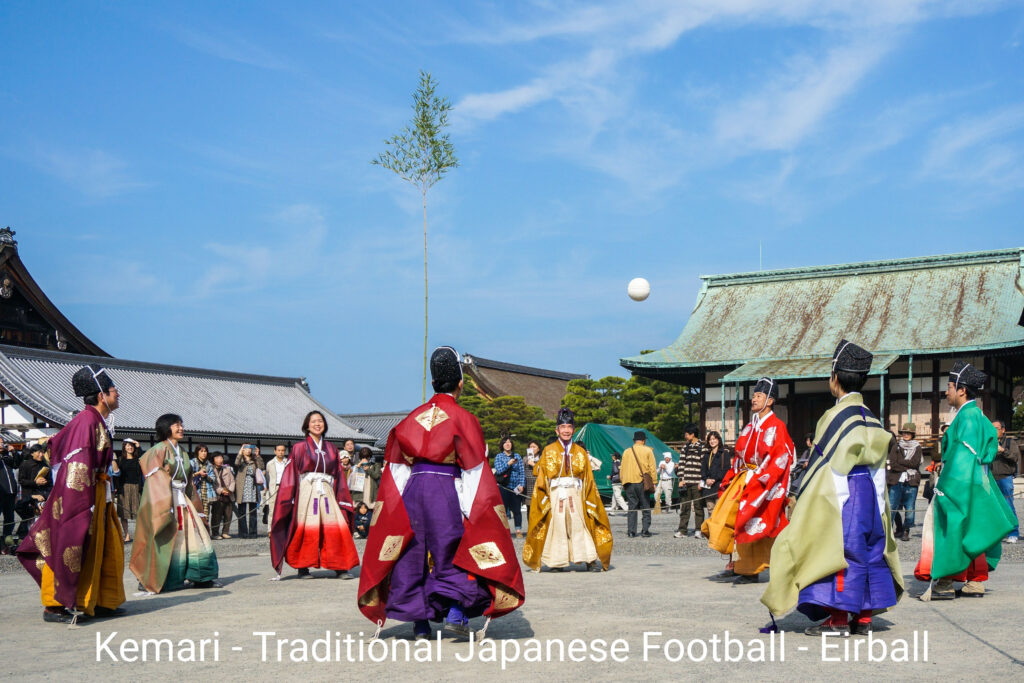
Marn Grook (Australian Aboriginal)
Marn Grook (Australian Aboriginal)
a girl playing soccer on a field Photo by Roman Castillo on Pexels.com
Marn Grook is an Australian Aboriginal Football game.
Australian Aboriginal: Marn Grook
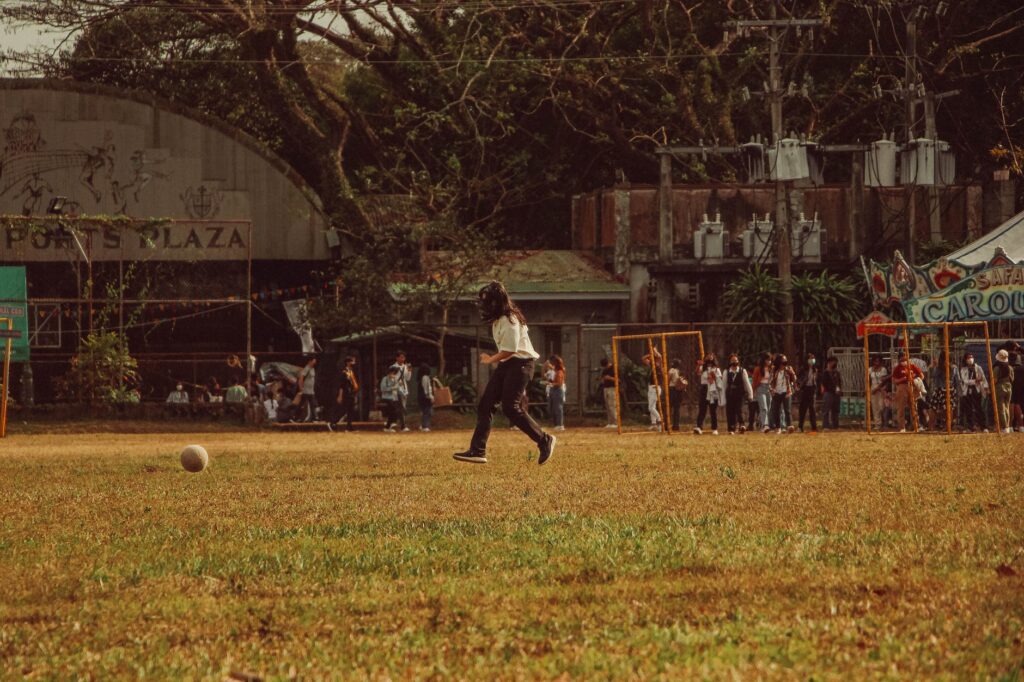
Ancient Chinese Penalties
Cuju is an ancient Penalties Version of Football from China.
Cuju (China)
Cuju (China)
Cuju is an ancient Penalties Version of Football from China.
Cuju (Chinese Football)
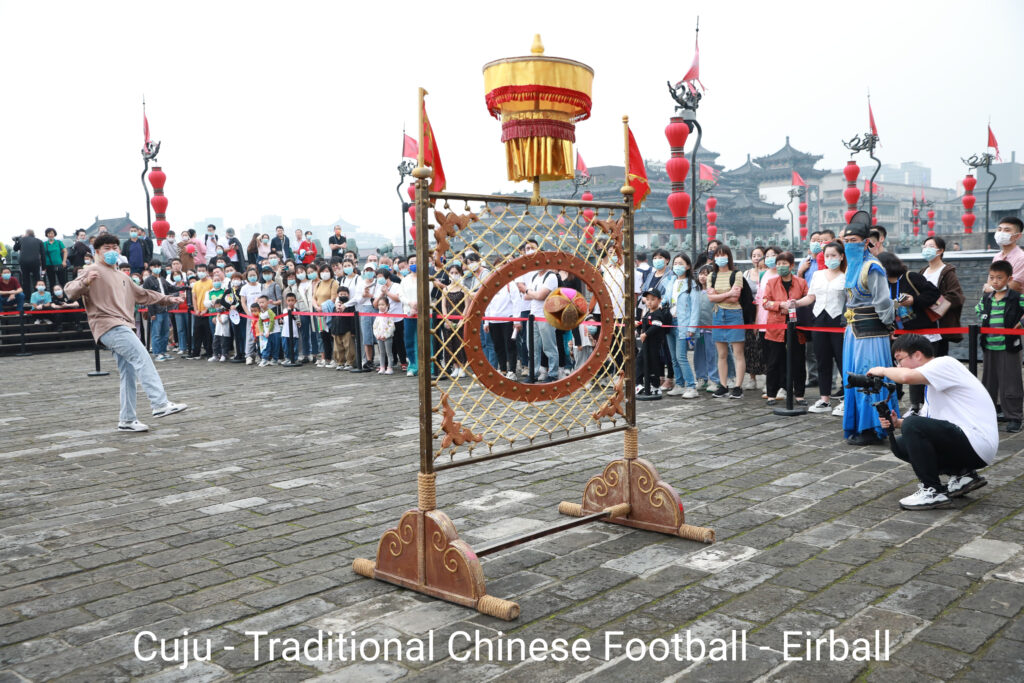
Southeast Asian Footvolley
Sepak Takraw is a version of Volleyball or Football played with every part of the body except the arms and is Native to Malaysia and Thailand, both of whom claim to have invented it and where the game is a National Sport. It is popular throughout South East and East Asia. Other versions of the sport are played in Myanmar and elsewhere.
Sepak Takraw
Sepak Takraw is a version of Volleyball played with every part of the body except the arms and is Native to Malaysia and Thailand, both of whom claim to have invented it and where the game is a National Sport. It is popular throughout South East and East Asia.
Sepak Takraw (Malaysia, Thailand – South East Asia)
MALAYSIA, KUALA LUMPUR, 10 SEPTEMBER 2017 – Sepak Takraw Athletes perform during 29th Sea Games Kuala Lumpur 2017 Picture Credit: Mohd Nasirruddin Yazid
Sepak Takraw (Ireland)
UCD Sepak Takraw Club 2014-Present
Sepak Takraw League (Malaysia)
Sepak Takraw League (Malaysia) 2015-2016
Sepak Takraw Games (East Indonesia)
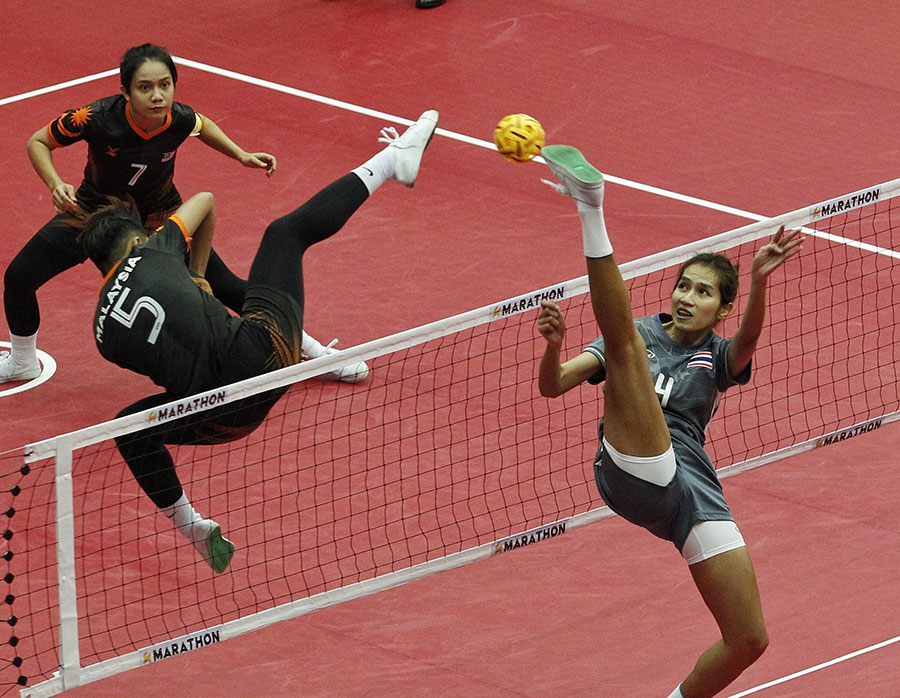
World Street Soccer
Chandimu is an African Street Football sport.
Chandimu (Tanzania)
Chandimu (Tanzania)
men playing soccer at the street Photo by Mehmet Turgut Kirkgoz on Pexels.com
Chandimu is an African Street Football sport.
Tanzania: Chandimu
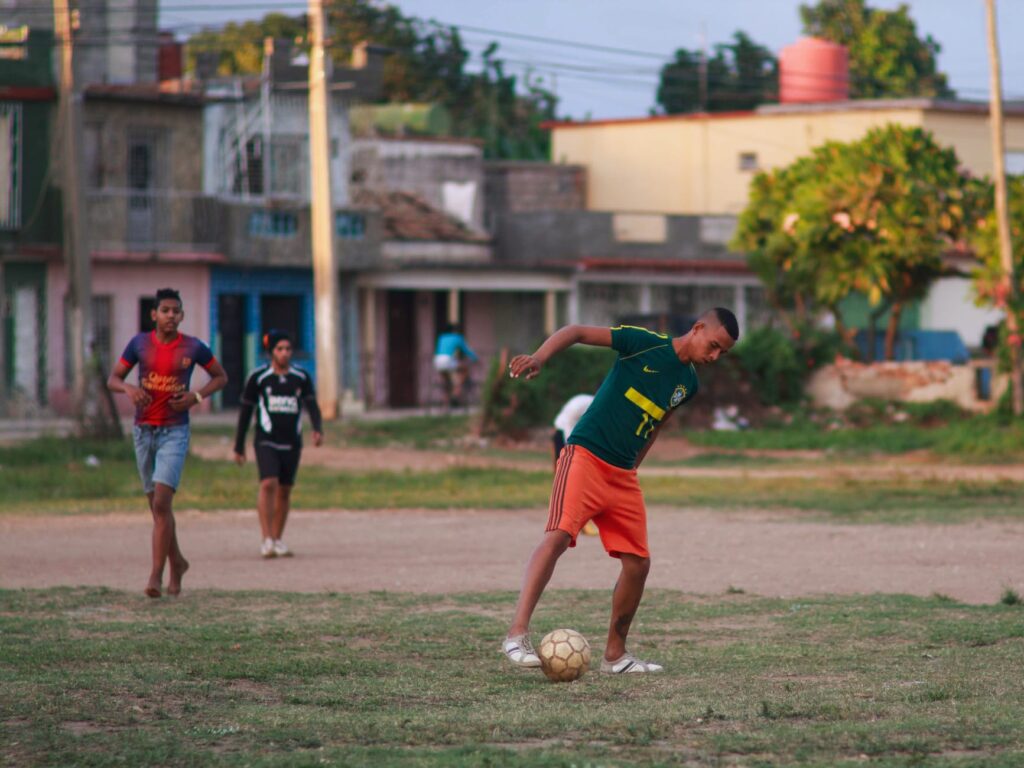
Native American Football
A number of Football Sports are Native to the Americas: One Foot High Kick is an Inuit (Eskimo) sport whereby players compete to kick a ball held at the end of a string and attempt to land on the same foot as the one used to kick the ball. The highest successful kick and land is the winner.
In Mexico and Central America Ulama (as known to the Mexica-Aztecs) or Pok-ta-Pok (as known to the Maya) is a Native Mexican and Central American Sports using a rubber ball and the hips. It is played in Mexico, Guatemala, Belize and Honduras.
Header Image Photo Credit: Bruno_Doinel MEXICO CITY, MEXICO – DECEMBER 25, 2021: Mexican indigenous descendants playing a prehispanic ball game called “Ulama” on the Plaza Tlaxcoaque. At the background, a baroque chapel. [Internet] Available from: https://www.shutterstock.com/image-photo/mexico-city-december-25-2021-mexican-2259141971 [Accessed 20 December 2023][Edited for Eirball by Enda Mulcahy]
Ulama – Pok ta Pok (Mesoamerica)
Ulama (as known to the Mexica-Aztecs) or Pok-ta-Pok (as known to the Maya) is a Native Mexican and Central American Sports using a rubber ball and the hips. It is played in Mexico, Guatemala, Belize and Honduras.
Ulama is the ancient sport of the Native Aztec (Mexica) and Maya of Central America (Mexico, Guatemala, Belize and Honduras). It is played with the hips, with two teams trying to propel the ball past the opposing team and has been played since 1400 BC. It is known as “Pok Ta Pok” to the Maya and “Ulama” to the Mexica.
The Juego de Pelota Mesoamerican Ulamaztli Championship is an Annual Regional Competition in Teotihuacan, Mexico City, the seat of the ancient religious / ritual centre, and where the most impressive ancient Ball Court is to be seen.
The Ulama Mesoamerican Ball Game Tournament is the Annual World Cup basically, bringing together teams from Mexico, Guatemala, Belize and Honduras.
Mesoamerican Ulama Pok-ta-Pok
Photo Credit: By Leon Rafael Mayan Ball court found in Uxmal This ball court is part of the Mayan culture found all over Yucatan’s archeological sites. Uxmal is in Yucatan an it used to be a huge populated city. Royalty-free stock photo ID: 197886914
Ulama Mesoamerican Ball Game Tournament (Ulama World Cup)
Ulama Pok-ta-Pok Mesoamerican Ball Game Tournament 2017-Present
Juego de Pelota Mesoamerican Ulamaztli Championship (Teotihuacan, Mexico)
Juego de Pelota Championship (seasons):
Ancient Mesoamerican Ball Game
